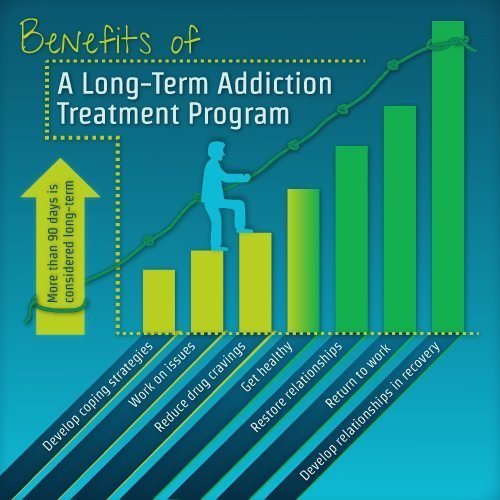An Unbiased View of Narconon Africa
An Unbiased View of Narconon Africa
Blog Article
See This Report about Narconon Africa
Table of ContentsThe Facts About Narconon Africa RevealedThe smart Trick of Narconon Africa That Nobody is Talking AboutThe Best Guide To Narconon AfricaTop Guidelines Of Narconon AfricaThe Single Strategy To Use For Narconon AfricaThings about Narconon AfricaExcitement About Narconon Africa
In a series of documents with Manudeep Bhuller and Katrine V. Lken, we conquer these information challenges and the nonrandomness of jail time, using brand-new insights right into just how incarceration influences relapse, work, kids, and criminal networks - Meth addiction help. Figure 1 Our job researches the impacts of incarceration in Norway, a setup with two essential benefitsWe can better link this details to other relative, consisting of children and brother or sisters. Moreover, we know on co-offending that enables us to draw up criminal networks for observed crimes. Second, we can take advantage of the arbitrary task of criminal instances to courts that vary in their propensities to send out offenders to jail.
Some courts send out offenders to prison at a high rate, while others are a lot more tolerant. We gauge a court's stringency as the average imprisonment price for all various other instances a judge deals with, after controlling for court and year set effects, which is the degree of random job. This quasi-random task of judge stringency can be utilized as a tool for incarceration, as it strongly forecasts the judge's decision in the present case, yet is uncorrelated with other case attributes both by design and empirically.
Getting The Narconon Africa To Work
Qualities of prisoners, including demographics and criminal offense classifications, are broadly similar in Norway and various other countries, including the United States, with the exceptions that the United States homicide price is much higher, and race plays a bigger role there as well. What stands apart as different, particularly compared with the United States, is the prison system.
Figure 2In Norway, the ordinary time spent in jail is a little over 6 months, which is similar to most various other Western European countries. This contrasts with typical United States jail time of almost three years, which remains in large part the factor the United States is an outlier in its incarceration rate contrasted with the remainder of the world [Number 1]
The Ultimate Guide To Narconon Africa
This provides far more separation in between minor and hard offenders than exists in the USA. There is no overcrowding in Norwegian jails and much better personal safety and security, with each detainee being assigned to their very own cell and a higher inmate-to-staff ratio than in the USA (https://yoomark.com/content/narconon-we-are-dedicated-one-thing-helping-you-overcome-addiction-good-part-what-makes). Prisons in Norway likewise provide well-funded education and learning, medication treatment, mental health, and work training programs
Our study on the impacts of incarceration on the culprit, utilizing the arbitrary assignment of courts as a tool, returns 3 vital searchings for. Jail time discourages additionally criminal actions. We discover that imprisonment lowers the probability that an Recommended Site individual will reoffend within 5 years by 27 portion factors and decreases the equivalent variety of criminal costs per individual by 10 fees.
The smart Trick of Narconon Africa That Nobody is Talking About
We find substantial decreases in reoffending likelihoods and advancing billed criminal offenses also after accuseds are launched from prison. Our 2nd result is that bias due to option on unobservable individual attributes, if ignored, leads to the erroneous verdict that time spent in prison is criminogenic. If we just compare criminal accuseds imprisoned versus those not sentenced, we discover positive organizations between incarceration and subsequent crime.
This stands in contrast to our analysis based on the random assignment of judges, which locates an opposite-signed outcome. Third, the reduction in criminal activity is driven by people who were not working prior to imprisonment. Amongst these individuals, jail time enhances involvement in programs routed at boosting employability and reducing relapse, and this ultimately elevates employment and incomes while inhibiting criminal behavior.

Jail time triggers a 34 portion point increase in participation in work training programs for the previously nonemployed, and within 5 years their work rate increases by 40 portion points. At the same time, the chance of reoffending within 5 years is cut by 46 percent points, and there is a decline of 22 in the ordinary number of criminal charges.
Narconon Africa Fundamentals Explained

A plausible description for the distinction is that Norway's prison system varies noticeably, both in terms of prison-term length and jail conditions, from the US jail system. While recognizing the impacts of incarceration on the offender is a vital initial step, capturing spillover effects is likewise crucial for evaluating criminal justice policy and making efficient jail systems.
Narconon Africa - Questions

Common least squares estimates disclose that children of incarcerated fathers are 1 portion point most likely to be charged with a crime, relative to a mean of 13 percent, and show no impact on college qualities. Utilizing our court stringency tool, we discover no analytical proof that a daddy's incarceration influences a kid's own crime or college grades, yet we are not able to eliminate modest-sized results.
Some Known Factual Statements About Narconon Africa
We define criminal groups based on network web links to previous criminal situations. When a criminal network member is jailed, their peers' probability of being billed with a future criminal activity decreases by 51 percent factors over the next four years - https://narconon0346.wixsite.com/narcononza12/post/the-pathway-to-freedom-from-addiction.
Report this page